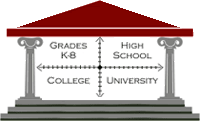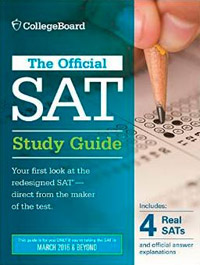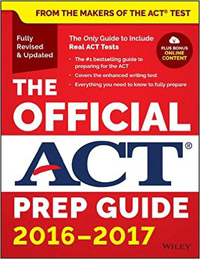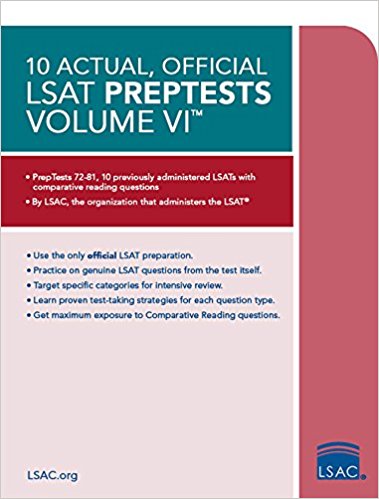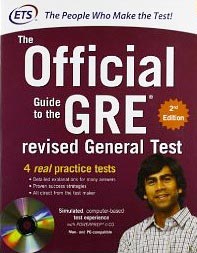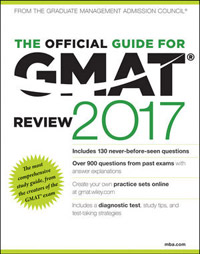|

Elemental Prep's Ellen Cassidy, author of "The Loophole in LSAT Logical Reasoning," believes that $2,100 per lesson for private LSAT tutoring is fair and reasonable. Do you?
Today I’d like to address an issue that has been gnawing at me for some time—the rise of private test-prep “super tutors” who charge an obscene $1,000/hr and up.
First, a disclaimer: I also charge a premium for my own private tutoring services. My hourly rate is between $365 and $495/hr, depending on the package (I started in 2002 at $40/hr).
However, I’m not trying to take advantage of my students, or capitalize on their fear of failure—and I would argue that’s what separates me from these 4-figure tutors, one of whom claims to make over $100,000/month. “Only I have the secret recipe to get you the score you need!” is the message that these individuals are trying to send, when in fact there are fantastic, highly effective tutors at all price levels.
This self-promotional attitude also contains a dangerous and untrue suggestion: that private tutors are mainly responsible for their students' score improvements, when in fact 80-90% of the work should be done by the student on their own for optimal improvement.
Yes, I understand that we live in a capitalistic society. Everyone deserves to make a fair living, and to let the free market determine what they are worth—including private tutors. However, charging your private students 4 figures an hour is just plain exploitative, no matter how you might try to spin it.
So how do these astronomically-priced tutors manage to charge so much, and yet (supposedly) find actual paying clients?
These glorified scam artists are not nearly as successful as they try to appear. A quick internet search will reveal that nearly any time they are mentioned on social media, there are one or or two posters or commenters with near-zero account history who claim to be super-satisfied and successful students of the program…aka sockpuppets, along with 10 more actual commenters with real opinions about their ridiculous prices. At any given time on Reddit, for example (a website where it’s far too easy for one person to create multiple accounts), you can find test-prep instructors posting “advice” that is really just a thinly-veiled advertisement for their own books, learning programs, and/or private tutoring services. Sadly, this behavior can even extend to the moderators themselves, who are often fledgling private tutors and education company employees searching for free marketing opportunities.
If you have the wisdom to research a company and/or person on the wider internet, however, then the truth will often slowly reveal itself. Ellen Cassidy, for example—the self-proclaimed "world's #1 LSAT Tutor"—has earned a grand total of two Yelp reviews (for an average of 2.5 stars) during Elemental Prep's entire 12 years in business.
Another LSAT tutor and self-annointed "genius" will charge you $400/hr for his services—plus $8,000 up-front for his copyrighted Reading Comprehension techniques—but he won't even disclose his full name. And good luck getting most of these tutors to offer you the slightest evidence of their claimed official scores. Suspicious, right?
One instructor was even caught red-handed trying to fake a perfect 180 LSAT score, and then sued by another prep company. Here's the legal complaint / forged score report (page 7) and Dave Hall's since deleted apology (along with 23 pages of incredulous and hilarious comments), for posterity...since the internet never forgets.
Out of the many LSAT tutor fraud stories, however, this one has got to take the cake: California LSAT tutor Nathan Cepelinski (who operates under the pseudonym "Nate Morris") was sued in 2021 for advertising multiple perfect 180 LSAT scores—when in fact he has never taken a single real, administered LSAT! Cepelinski's sham explanation / excuse is that the 180 scores he advertises were "from official LSAT practice tests that he took at home and proctored/scored himself"—yet another clear-cut and blatant example of false advertising in the rarefied world of private test-prep tutoring. (Since the lawsuit, Mr. Cepelinski has been forced to clarify that these supposed perfect 180s were actually from self-administered practice tests, not real LSATs.) Article
Such tutors will often try to create a cult of personality, mythologizing their techniques by creating an unnecessary and redundant set of vocabulary / acronyms. Cassidy has written a 462-page Logical Reasoning book where she attempts to trademark a whopping 33 different terms, for example, including—I kid you not—the words “Translation” and “Loophole”, common LSAT vocabulary that had been already been in use for decades, and that the author clearly did not invent in any way, shape or form.
Unsurprisingly, Cassidy's self-righteous quest to reinvent basic, established terminology for the Logical Reasoning and Reading Comprehension sections in an effort to mass-produce and market her own LSAT course has resulted in frequent confusion (example 2 / example 3) on behalf of her readers and private students, who she creepily refers to as "my loves" and her "sweet loopholers."
Like any good cult leader, Cassidy repeatedly claims in her many YouTube and TikTok videos that her tutoring program is completely revolutionary and 100% different from everything else out there: it’s not, of course…again, she simply uses different vocab and terminology ("CLIR", "Powerful/Provable," etc.) to refer to the same old LR concepts we've been using effectively for decades.
Cassidy also repeatedly claims on YouTube that Loophole is the “#1 LSAT book” without providing any evidence (again, it’s not...nor has it ever been).
Her hourly rate? $1,050/hr…and lessons are 2 hours minimum. Highway robbery! Even Ellen herself has admitted that she earned a 174/180 LSAT score about 12 years ago with nothing other than the PowerScore books, some official LSAT PrepTests, and a study plan she found for free through a Google search.
One thing is for sure: these tutors clearly think highly of themselves. I’ve also authored test-prep books, and invented my own proprietary strategies and techniques—but I have not used these facts as an excuse to overcharge, exploit desperate students, or self-mythologize. In fact, all 7 of the test-prep books I’ve written or co-written are available as free PDFs.
If a student can’t afford my private tutoring services, for example, then I’m happy to point them toward a more affordable option, instead of continuing to push the sale. No one should ever have to go broke just to pay for my tutoring.
One SAT tutor in New York City charges an even-more-ridiculous $1,500/hour. You may have heard of them, since they spend a great deal on advertising. Of course, I doubt they get much real SAT tutoring work at that rate—but they have done a decent job of finding “pay for play” news organizations to write “articles” (truth: advertising copy) about their services, which means that they are visible enough to have found a few gullible, affluent clients.
Another high-priced, degree-collecting tutor advertises that he is a dermatologist and MBA, and tutors / runs the business "on the side," as if the many years required to complete medical school, medical training, and business school are somehow relevant to the art of teaching and tutoring the digital SAT. Personally, I wouldn't trust a dermatologist to improve my SAT score any more than I would trust an SAT tutor to care for my skin.
Meanwhile, I charge only 30-50% of what these tutors do, and I offer decades more experience. Thus, in my opinion, the choice is clear—but consumers are not always rational and/or fully informed.
Please, stay away from these greedy, cult of personality, TikTok tutors who spend more time marketing themselves than actually teaching. They have entered the field for the wrong reasons, and they give our noble profession a bad name.
Tutors are not magicians—even the best of us still need some time to make a difference, which is why I charge about the same amount for five lessons as these other tutors charge for just one. I like to stay busy, because it helps me continue to hone my craft. I’m here to help students, make a living, and build my reputation, not to extract every possible cent from my clients.
Writing test-prep guides is of course another way to become an expert (assuming it’s a well-written book), but author and tutor are two very different professions, and I would never dare count my many hours spent crafting these books as actual tutoring experience.
After all, a good tutor can explain concepts verbally much more quickly, easily, and intuitively than can a 468-page book full of redundant, confusing, and gimmicky terminology meant to steer students toward their overpriced private tutoring services.
Speaking of experience, it matters: not just years of experience, but more importantly, actual tutoring hours! At my current “market” rate, I have been able to tutor approximately 30-40 hours a week consistently for the entire duration of my professional career, while these overpriced tutors are typically only able to find intermittent, seasonal tutoring jobs due to their exorbitant rates.
Practice makes perfect, and some tutors simply don’t find enough real, one-on-one work to become true experts. Instead, these 4-figure “super tutors” instead spend most of their (plentiful) free time browsing the internet, working on their hobbies and/or day jobs, writing books and blogs (guilty as charged), recording podcasts, advertising, and of course proclaiming their greatness on YouTube and TikTok.
In contrast, I just keep on truckin' tutoring: I've now amassed approximately 24,000 hours of experience since 2002.
Repackaging the same test-prep strategies that have already worked perfectly for decades, trying to pass them off as revolutionary (including barely-modified Scientology terms), and exploiting your private students by charging $2,100 for just one lesson? Gross.
At that point, you are clearly only catering to the ultra-rich, and taking advantage of those who falsely equate price with quality. In other words: you’re nothing but a con artist.
Meanwhile, my hourly rate has stayed constant since 2017, and I have no plans to increase it.
Perhaps I’m leaving a little bit of profit on the table by not charging these types of usurious rates—but going to bed with a clear conscience is priceless.
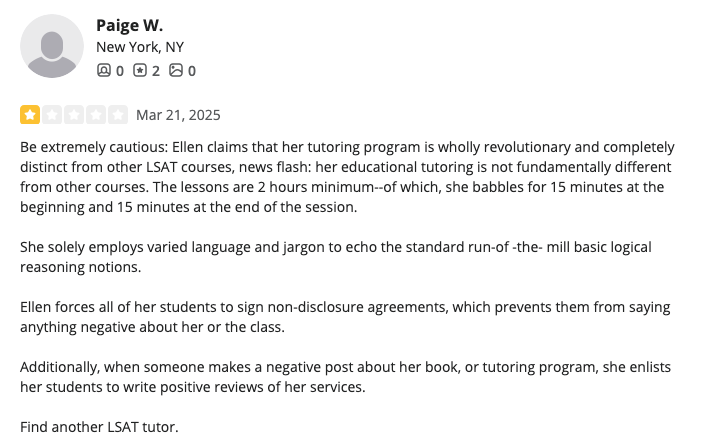
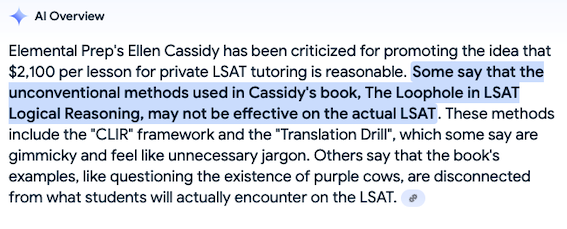
Back to Blog Home
|




